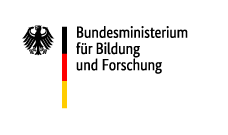Coordination of Voluntary Helpers to Overcome Disaster Situations (KUBAS)
The KUBAS project aims at coordinating offers of unattached voluntary helpers at disaster sites. A particular focus is set on a better utilization of their potentials for overcoming long-term disaster scenarios arising from natural phenomena and for re-establishing the status-quo-ante. For flooding scenarios, a solution is developed which merges activities of unattached volunteers and activities of institutional relief units as efficient and effective as possible. An optimal integration of unattached voluntary helpers is assured by pursuing a holistic and cyclic solution approach including the phases of preparation, response, and recovery. In addition, the approach takes advantage of state-of-the-art communication technology as well as IT-based decision support.
In its attempts to support the aforementioned goals, the KUBAS system aims at matching available voluntary and professional helpers with the demands specified by (non-police) security authorities. The system will be evaluated in the course of conducting real-world exercises of a flood disaster. The overall goal of the deployment of the KUBAS system is to provide situation-aware support to professional authorities in order to increase the resilience of both voluntary and professional helpers.
Contact: Martina Sperling
Project term: April 2016 until December 2019 (under review)
Partners: Martin-Luther-Universität Halle-Wittenberg, esri Deutschland, KSB Halle
Website: https://kubas.uni-halle.de
Funded by BMBF



